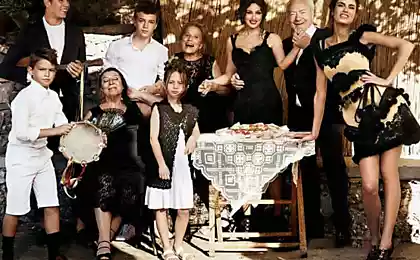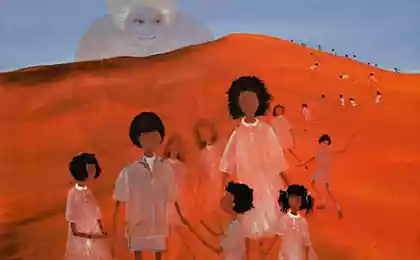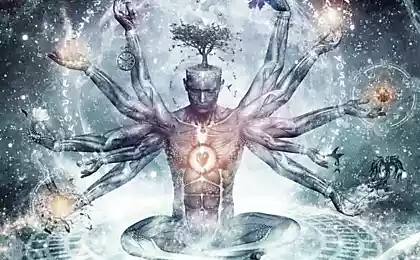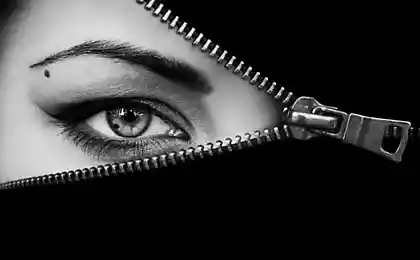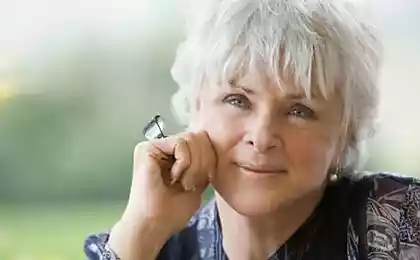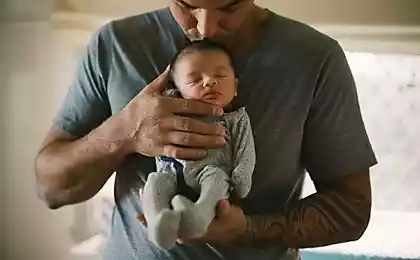473
Psychokinesiology: what is Your name and Your ancestors affect Your life
Did you know that from the psychological trauma your grandfather and what name you called your parents, depends largely on what is happening with you today? Psihogennaya explains the nature of this relationship.
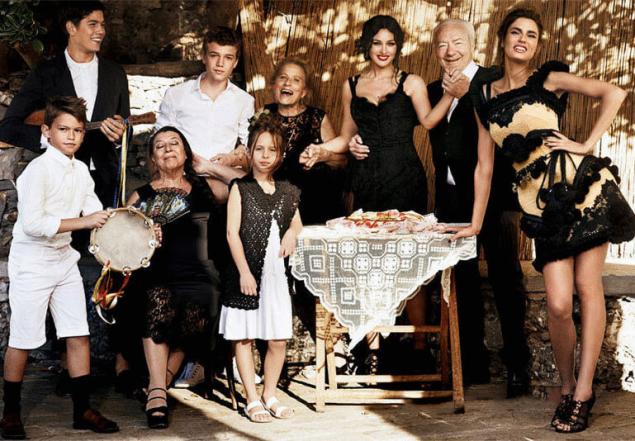
Select the name of the one who is already familiar with psihogennaya and going to study in detail the history of his family, in order to find Parallels with her own life, to start is to learn under what circumstances you got your name. Most parents name a child in honor of your own father or mother, by the name of a deceased child or relative, your idol or a former lover/sweetheart.
It's incredible, but many experienced therapists will tell you that at some point in psychotherapy, the patient suddenly begins to remember their dead relatives (e.g., brother, sister, etc.), in whose honor it was named. And wittingly or unwittingly draw an analogy with your life, as if lives the man himself (at least partially).
In fact it is not so difficult to explain. Psychologists familiar with the phenomenon of the so-called psychological message that the unconscious is given by parents to their children. About it we will talk later, but one of these unconscious messages is the name. Parents would "speak" to your child (without words, of course): "We want you to look like a deceased relative, a person whom we admire, whom we love, which we remember". Despite the good will of the parents, it can even break their child's life or just to prevent him from just about anything- from career to family life.
All the nuances of this process are difficult to explain in one article, so we refer you to the book the famous therapist Ann anselin, Lutzenberger "Psychogenically. How to heal family wounds and to find herself", and also cycle video Alexander Gordon with the psychologist Olga Troitskaya "happily ever after. Everything about the man, the woman and the family."
Silent transmission of the experience If you're not a psychologist, but interested in this path, know this: the most serious psychological trauma is what they are about. But the family is often silent. So accepted: "why raise unpleasant topics." Many people sincerely believe that if something is not to speak and "not to think", this will no longer bother. But the point is just that a painful subject not only does not cease to bother – she will become much more formidable scale than she had initially. Often this silence leads to a pathological repetitions of a similar fate to many generations in a row ("women of our family always marry alcoholics – this is our cross, so we have no luck") or to a sickness that cannot be cured by a doctor, but the man on the fifth circle can pass multiple examinations. Experienced doctors, by the way, in such cases, send the patient to the therapist, realizing that we are talking about psychosomatic disease, but not all patients go to him, and start over.
It is not in luck or its absence, and in the hidden "scripts" that are unconsciously instilled in us by our parents and their parents etc. and the question is not only that "the child learns what he sees" – often much more difficult.
"The pictures of past traumas, both personal and family, can be transmitted from generation to generation, for example, in the form of nightmares, as well as accidents, unexpected events in particular important (for a particular family – NS) date," writes Anne Ancelin, Lutzenberger.
Imperfect mourning
Children made to deceive, when someone loved dies adults, or at least, not to take to the funeral ("why would a child look at it"). If I knew the uneducated well-wishers, what kind of injury they cause thus the child, then, of course, would have refused such a practice.
Loss, no matter how horrible and unbearable it may be, must be mourned (literally), it is necessary to talk with your child. To tell you simply and calmly, without embellishment, excessive comfort, you need to be with your child — not only physically, but also mentally, to be considerate and sensitive to his spirit. The child needs to accept the death of a loved one, and for that we need a natural "work of grief". Only then neither he nor his children and grandchildren will not have problems with this unmourned loss.
Ann anselin, Lutzenberger: "When mourning is not done, remains interrupted, "incomplete action" that causes a person and his descendants "wander" (as they say, that roams the dough or wine).
The same can be said about "family secrets" and "secret" things. Made, for example, not to tell the adopted child (if parents took him from the orphanage baby) that he's adopted. So terrible the harm can not be underestimated. If you are preparing to take the baby from a shelter, be sure to tell him that he was not home, but add that for you it has no value and that you love him as your own (though only if it really is. If you are honest enough with themselves and feel that this is not true – do not lie: this will cause even more damage). To speak on such topics with the child should be calm and confident.
Double coercion Or dual message. It is the Bane of almost all (with rare exceptions) the children and reared them from adults. "I remember a classic case of double coercion: the mother offers son two shirts for birthday, writes Anne Lutzenberger. The next day the son wears one of these (blue), and his mother pushes – he doesn't like the mother because not wearing the other (green). When he wears green, mother repels him again – he doesn't like the mother because not wearing blue. And when the son wears both shirts, one on another, the mother exclaims: My son is crazy!"
Such promises we see every day everywhere. When the father forces the son to be obedient and not to cry when it is abused, and at the same time teaches you to fight back the boys in the yard: "You're the man!" When the mother tells the daughter, "Where you dressed up!", "You have to lose weight/smaller nose/eyes bigger/thicker hair, etc.", and then complains that her daughter is "still not married" is that it behaves "like a man", etc.
Especially frequent are the parent of the message: "do Not live (don't be)" (if it wasn't for you...; before you were born... (a story about something good), after you were born... (a story about something bad); we wanted a boy, and you were born (and Vice versa), etc.), "Not to grow up (not grow up)" (little kids are so good!; "I love little children; little children are all good, but then...; my dad wanted a divorce, but decided to wait until you're older; mom will love you if you're next to mom, etc.), "don't be yourself" (we wanted a healthy baby, but you were born; we wanted a girl, but you were born; we all felt the death of the first child and decided to have another one), "don't be happy" (the situation when the parents telling the child about as they struggled in order to grow/to wear/to feed/to give him an education.
The child, knowing that for his sake suffered, feels a sense of guilt, but to repay the "debt" can not. So happy he can't, either; the situation where a child, being sick, gets much more love and attention than when he is healthy, in the future, it may unconsciously hurt to be loved), etc. – the parent messages a great many.published
P. S. And remember, just changing your mind — together we change the world! ©
Source: naked-science.ru/article/psy/psikhogenealogiya-i-semeinye-t

Select the name of the one who is already familiar with psihogennaya and going to study in detail the history of his family, in order to find Parallels with her own life, to start is to learn under what circumstances you got your name. Most parents name a child in honor of your own father or mother, by the name of a deceased child or relative, your idol or a former lover/sweetheart.
It's incredible, but many experienced therapists will tell you that at some point in psychotherapy, the patient suddenly begins to remember their dead relatives (e.g., brother, sister, etc.), in whose honor it was named. And wittingly or unwittingly draw an analogy with your life, as if lives the man himself (at least partially).
In fact it is not so difficult to explain. Psychologists familiar with the phenomenon of the so-called psychological message that the unconscious is given by parents to their children. About it we will talk later, but one of these unconscious messages is the name. Parents would "speak" to your child (without words, of course): "We want you to look like a deceased relative, a person whom we admire, whom we love, which we remember". Despite the good will of the parents, it can even break their child's life or just to prevent him from just about anything- from career to family life.
All the nuances of this process are difficult to explain in one article, so we refer you to the book the famous therapist Ann anselin, Lutzenberger "Psychogenically. How to heal family wounds and to find herself", and also cycle video Alexander Gordon with the psychologist Olga Troitskaya "happily ever after. Everything about the man, the woman and the family."
Silent transmission of the experience If you're not a psychologist, but interested in this path, know this: the most serious psychological trauma is what they are about. But the family is often silent. So accepted: "why raise unpleasant topics." Many people sincerely believe that if something is not to speak and "not to think", this will no longer bother. But the point is just that a painful subject not only does not cease to bother – she will become much more formidable scale than she had initially. Often this silence leads to a pathological repetitions of a similar fate to many generations in a row ("women of our family always marry alcoholics – this is our cross, so we have no luck") or to a sickness that cannot be cured by a doctor, but the man on the fifth circle can pass multiple examinations. Experienced doctors, by the way, in such cases, send the patient to the therapist, realizing that we are talking about psychosomatic disease, but not all patients go to him, and start over.
It is not in luck or its absence, and in the hidden "scripts" that are unconsciously instilled in us by our parents and their parents etc. and the question is not only that "the child learns what he sees" – often much more difficult.
"The pictures of past traumas, both personal and family, can be transmitted from generation to generation, for example, in the form of nightmares, as well as accidents, unexpected events in particular important (for a particular family – NS) date," writes Anne Ancelin, Lutzenberger.
Imperfect mourning
Children made to deceive, when someone loved dies adults, or at least, not to take to the funeral ("why would a child look at it"). If I knew the uneducated well-wishers, what kind of injury they cause thus the child, then, of course, would have refused such a practice.
Loss, no matter how horrible and unbearable it may be, must be mourned (literally), it is necessary to talk with your child. To tell you simply and calmly, without embellishment, excessive comfort, you need to be with your child — not only physically, but also mentally, to be considerate and sensitive to his spirit. The child needs to accept the death of a loved one, and for that we need a natural "work of grief". Only then neither he nor his children and grandchildren will not have problems with this unmourned loss.
Ann anselin, Lutzenberger: "When mourning is not done, remains interrupted, "incomplete action" that causes a person and his descendants "wander" (as they say, that roams the dough or wine).
The same can be said about "family secrets" and "secret" things. Made, for example, not to tell the adopted child (if parents took him from the orphanage baby) that he's adopted. So terrible the harm can not be underestimated. If you are preparing to take the baby from a shelter, be sure to tell him that he was not home, but add that for you it has no value and that you love him as your own (though only if it really is. If you are honest enough with themselves and feel that this is not true – do not lie: this will cause even more damage). To speak on such topics with the child should be calm and confident.
Double coercion Or dual message. It is the Bane of almost all (with rare exceptions) the children and reared them from adults. "I remember a classic case of double coercion: the mother offers son two shirts for birthday, writes Anne Lutzenberger. The next day the son wears one of these (blue), and his mother pushes – he doesn't like the mother because not wearing the other (green). When he wears green, mother repels him again – he doesn't like the mother because not wearing blue. And when the son wears both shirts, one on another, the mother exclaims: My son is crazy!"
Such promises we see every day everywhere. When the father forces the son to be obedient and not to cry when it is abused, and at the same time teaches you to fight back the boys in the yard: "You're the man!" When the mother tells the daughter, "Where you dressed up!", "You have to lose weight/smaller nose/eyes bigger/thicker hair, etc.", and then complains that her daughter is "still not married" is that it behaves "like a man", etc.
Especially frequent are the parent of the message: "do Not live (don't be)" (if it wasn't for you...; before you were born... (a story about something good), after you were born... (a story about something bad); we wanted a boy, and you were born (and Vice versa), etc.), "Not to grow up (not grow up)" (little kids are so good!; "I love little children; little children are all good, but then...; my dad wanted a divorce, but decided to wait until you're older; mom will love you if you're next to mom, etc.), "don't be yourself" (we wanted a healthy baby, but you were born; we wanted a girl, but you were born; we all felt the death of the first child and decided to have another one), "don't be happy" (the situation when the parents telling the child about as they struggled in order to grow/to wear/to feed/to give him an education.
The child, knowing that for his sake suffered, feels a sense of guilt, but to repay the "debt" can not. So happy he can't, either; the situation where a child, being sick, gets much more love and attention than when he is healthy, in the future, it may unconsciously hurt to be loved), etc. – the parent messages a great many.published
P. S. And remember, just changing your mind — together we change the world! ©
Source: naked-science.ru/article/psy/psikhogenealogiya-i-semeinye-t

